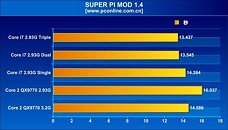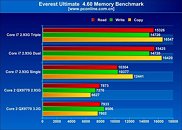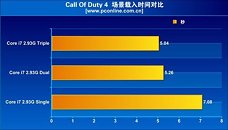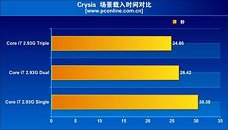
Core i7 940 to be Phased Out
Intel's Core i7 has proven to be a fitting successor to Intel's higher-end Core 2 series processors, and is the fastest series of microprocessors the industry has to offer. Introduced in three variants: models 920 (2.66 GHz), 940 (2.93 GHz) and 965 XE (3.20 GHz), Intel targeted the sub-$300, sub-$600, and sub-$1100 segments. Due to the reasonably good overclocking potential the chips offer, 920 has been a successful variant due to its price, while 965 XE sold due to the sheer fact that it's a high-end chip with bus multipliers unlocked. The 940, however seems to have fallen in a tough spot, where buyers have to pay almost twice the price of 920 for a small increase in speeds.
To provide a better deal for the sub-$600 segment, Intel is in the works of phasing-out the Core i7 940. In its place, Intel will introduce the Core i7 950. This chip first surfaced in February. Its specifications include clock-speed increased to 3.06 GHz, while retaining the 4.8 GT/s QPI speed. This chip widens the gap between itself and the 920, providing the incentive of a significantly higher bus multiplier (23 x 133 MHz). An increased multiplier value will have its impact on the overclocking potential. As for 940, the company will continue taking orders from channel vendors till September 4th, in both tray and boxed forms, which will be delivered by November 5th and December 4th, respectively.
To provide a better deal for the sub-$600 segment, Intel is in the works of phasing-out the Core i7 940. In its place, Intel will introduce the Core i7 950. This chip first surfaced in February. Its specifications include clock-speed increased to 3.06 GHz, while retaining the 4.8 GT/s QPI speed. This chip widens the gap between itself and the 920, providing the incentive of a significantly higher bus multiplier (23 x 133 MHz). An increased multiplier value will have its impact on the overclocking potential. As for 940, the company will continue taking orders from channel vendors till September 4th, in both tray and boxed forms, which will be delivered by November 5th and December 4th, respectively.





